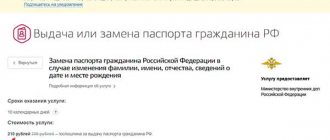When getting married, using a double surname is a long-standing tradition that was actively practiced in the pre-revolutionary period. During the Soviet Union, the dynamics of the use of this form decreased, but in the 21st century, the interest of citizens has grown again. According to statistics, about 75% of girls take their spouse’s surname when getting married, 17% leave their maiden name, and only 8% prefer the couple format.
However, if such a desire arises, citizens need to know the nuances of undergoing such a procedure, as well as possible difficulties.
Legislative norms
The procedure for completing the procedure for changing a personal form is defined in the legislation of the Russian Federation. The IC of Russia (article) establishes the right of a husband and wife to choose a surname, including a married name. The procedure is simple and consists of submitting an application for marriage, in which the bride and groom indicate their desire to join the family. The registry office staff will make notes in the relevant papers.
Article 32 of the Family Code of the Russian Federation “The right of spouses to choose a surname”
The right of spouses to choose a surname
As a sign of family nobility
If we turn to the origins, we can find out that double Russian surnames showed, first of all, the nobility of two families. Peasants and artisans could not boast of such good things. This was the prerogative of the nobility; it indicated the nobility and antiquity of the family.
The royal dynasty of the Romanovs, for example, used to bear the proud surname of the Zakharyins-Yuryevs.
Registration procedure
The process of drawing up an application involves entering additional lines into a special form.
This applies to both women and men. In the future, this information will be carried out by civil registry office employees during registration. The required columns in the application are those that involve changing personal information, i.e. personal data.
In other words, future spouses must register the chosen option when entering into marriage:
- keeping maiden;
- choice in favor of the future spouse;
- pair form.
Read also: How to pay for kindergarten with maternity capital?
A simple way to obtain a complex form of origin is to send a statement from each party. The award of official status occurs on the basis of expression of will. In the absence of consent from one of the participants, personal information will not be adjusted. That is, only the data of the person who confirmed the choice can be changed.
In addition to restrictions on the use of a premarital couple's surname for one of the participants, there are also regulatory documents in certain regions of Russia. In other words, if restrictions on such a procedure are introduced in the region, citizens will not be able to register a union in the registry office of this subject. Typically, this happens due to national, religious or cultural rules. Therefore, before getting married, you should clarify this possibility.
Positive and negative points
Positive sides:
- the beautiful sound of each part is enhanced;
- makes you attract attention all the time;
- reminds you every time of your roots, origin, parents;
- is a manifestation of respect for the husband or wife and for one’s family.
Negative points:
- standard documents may not have suitable columns;
- Difficulties may arise in everyday life due to difficulty remembering;
- the child may have problems at school with peers;
- There may be errors in spelling and pronunciation.
Before submitting an application, you need to assess the consequences.
How to take a double surname some time after marriage
Situations often occur when a woman, upon marriage, decides to take her husband’s lineage. However, after a while it leans towards the tandem look. In accordance with Russian laws, a citizen has the right to change personal data at any time. However, such actions must be carried out in the prescribed manner - by submitting an application to the registry office.
Sample application for change of surname
Additionally, you must provide the following documents:
- birth certificate;
- marriage and divorce certificate;
- passport.
The application states the reason and indicates the new origin. In a number of situations, registry office employees may refuse to change. Such decisions are unlawful and must be appealed through supervisory authorities or the court.
Note: the final version of the surname must have a hyphen separating the maiden and husband. Mandatory - no spaces, both are written with a capital letter, and the ending is used in the nominative case.
For example: the Sidorov-Petrov family
Let's consider the option: a future husband with the surname Sidorov takes as his wife a citizen with the surname Petrova. Not wanting to renounce her roots, but at the same time feeling the need to “respect” the status of a married woman, the bride is going to combine the surnames of Sidorov and Petrov and enter a new one into her passport with a hyphen. What should she know about this process?
Firstly, the husband's last name always comes first, regardless of alphabetical order. The wife's surname may begin with A, and the husband's with Z, but a strict patriarchy will operate in the common surname - first male, then female. In our case – Sidorova-Petrova.
Secondly, you can add to your premarital surname only the surname of your husband, but not the more euphonious maiden name, for example, of your mother-in-law. That is, our girl will not become Obolenskaya-Petrova, for example.
Thirdly, if the future wife already has a double surname - at birth she is Petrova-Kuznetsova - then the registry office employees will not allow her to replace one of the surnames with her husband’s data.
And finally, fourthly: the husband will also have to change his data. A double surname in marriage means that both spouses will take it. Citizen Sidorov must become Sidorov-Petrov, there is no other way.
The last factor is the main obstacle for most girls considering options for a double surname. Most often, future husbands “take a pose” and are not going to change anything. Is there a way to get around this situation? Yes, there is, and this opportunity is right in sight.
List of documents to be replaced after marriage
Often, future husband and wife wonder whether it is possible to take double surnames after marriage. When changing your surname, whether both spouses will use the paired form or only the wife, you must provide a passport as proof of identity.
Accordingly, after making changes to the document certifying a citizen, other papers will need to be replaced. Often this moment causes difficulty for newlyweds, because it is necessary to spend time visiting government agencies.
Thus, after using tandem origin and changing the passport, you will need to replace:
- international passport;
- driver license;
- compulsory medical insurance policy;
- debit bank cards;
- individual taxpayer number (TIN);
- student ID and other documents related to education (diploma and certificates confirming completion of studies are not subject to change);
- vehicle passport.
Documents that can be replaced at the MFC
Accordingly, it takes a lot of time to change documentation. Only government officials can tell you the exact timing of replacement. In addition, there is a state fee for such a procedure.
If the passport is not replaced in time, the citizen will be subject to sanctions in the amount of 2,000 to 5,000 rubles. (depending on your region of residence).
Option with nickname
Double surnames of famous people were formed in different ways. Often they added a pseudonym to their real one - and the result was the one that is now well-known.
A striking example is the writer Saltykov-Shchedrin. At birth he was Mikhail Saltykov, but he chose the name Nikolai Shchedrin as his pseudonym. The final version, as it is known, is M.E. Saltykov-Shchedrin.
And Mamin-Sibiryak? The Russian prose writer and playwright took the pseudonym Sibiryak, being Dmitry Mamin at birth. But the stars aligned so well that he entered the history of literature as a writer with the double surname Mamin-Sibiryak.
Double surname for a child
In Russia, it is legally prohibited to assign children dual origin if one of the parents does not have such a type. Therefore, if a husband and wife want to write down such a surname for a child, then one of the spouses will need to make changes to their personal data.
For example, a mother has the right to submit an application to the registry office for the return of maiden origin, and then undergo registration for the assignment of a dual format. In addition, the procedure can be carried out if people have officially registered the relationship. However, it is permissible to marry after the birth of a child and settle the matter later.
Experts recommend not delaying the procedure, because after children turn 14, the choice of surname remains with the child - the wishes of the mother and father are not taken into account. When receiving a passport, the child must express his will.
Read also: Alimony from the state if the father does not pay
According to the provisions of the IC of Russia (Article), the following procedure is provided:
- up to 10 years of age, the decision to assign a paired surname to a child is made by the father and/or mother;
- 10-14 years old - parents or guardianship authorities;
- from 14 years old - only a child.
The rules for completing the registration procedure for making adjustments to a child’s personal data are similar to the standard procedure for persons over 18 years of age.
Article 59 of the Family Code of the Russian Federation “Changing the child’s first and last name”
Children's nicknames or just “out of my head”
Not only a pseudonym could become a soul mate. Double surnames of famous people were formed both from school nicknames and simply “at the behest of the heart.”
An example of combining a surname at birth and a school nickname is the composer Vasily Pavlovich Solovyov-Sedoy, where Solovyov is the surname received at birth, and Sedoy is the school nickname of the future celebrity.
Writer Alexey Novikov wrote about sailors and for sailors. All his works were imbued with a marine theme, and in the end he decided to add a little aquatic spirit to his surname. This is how a writer with the surname Novikov-Priboy was born.
Possible difficulties
This procedure has positive and negative aspects.
For example, newlyweds who have accepted this format of origin invariably raise the question of children. If the name form is simple for both, then legally it is forbidden to give children both. If they wish to make such changes, parents must act according to the established regulations. Note: during a divorce, people have the right to keep the form that was there during the marriage or return the old one.
An additional problem that newlyweds may face is disagreement. Thus, one of the parties may refuse to accept a complex form of origin, while the other, on the contrary, has such a desire. Russian laws allow one of the spouses to undergo the procedure, while the other does not make changes.
In addition, the regulations of individual regions of the Russian Federation should be taken into account. In a number of regions, authorities may hinder such a procedure due to cultural or religious views. To obtain information, you must contact the registry office. Refusal to register an application must be sent with an indication of valid reasons.
Paired descent is not passed on from husband to wife. If the husband is Petrov-Sidorov, then the wife by law cannot take her, because the format will already be triple. The problem is solved this way - the wife remains with a maiden origin or accepts the husband’s family in the form of Petrov-Sidorov.
Who can choose a new one?
In the Russian Federation, gender equality has been established, therefore, after marriage, not only a woman can take her husband’s surname, but also a man can take his wife’s surname. This is stated in Article 32 of the Family Code of the Russian Federation. Although this doesn't happen that often.
The reasons may be the following:
- The man likes the sound of his wife’s surname better than his own and refuses it.
- The wife's surname is more famous, which makes the husband strive to get her.
- The property that belongs to the wife is much larger, so it is more difficult for her to change her maiden name than for him to change his.
Is it possible to apply without a fiancé?
If one of the future spouses is unable to appear at the registry office to submit an application, he must fill out an application for marriage registration in Form 8. In this case, his signature must be certified by a notary.
The signature of the absent spouse can also be certified by the head of the correctional institution (pretrial detention center, colony) in which one of the spouses is kept (Part 2 of Article 26 of Law No. 143).
Submit an application
The application must indicate a request for registration of marriage, confirmation of mutual voluntary consent to the marriage of both parties, as well as the following information:
- Full name, date and place of birth, citizenship, nationality and education of the spouses, place of their residence;
- passport details;
- information from the divorce certificate of the previous marriage (if it was concluded earlier);
- information on the number of common minor children (if any);
- information about who and what surname will be assigned after registration.
Both parties must sign the application and indicate the date of its submission to the registry office. The application can be submitted directly to the registration authority or electronically on the State Services portal. In this case, the state duty is paid with a 30% discount.
A family union can be registered by any civil registry office of the Russian Federation at the choice of the spouses (Article 25 of Law No. 143 of November 15, 1997).
Preparing documents
The following documents must be attached to the application for marriage registration (clause 28 of the Regulations):
- Passports of future spouses.
- Data on the termination of the previous marriage, if any. Moreover, in the event of dissolution of family relations at the civil registry office where the new marriage is registered, it is not necessary to present a certificate of dissolution of the previous marriage.
- Permission to create a family for minor citizens.
- Receipt for payment of state duty.
We pay the state duty
After the application has been drawn up and all the documents have been collected, a mandatory payment must be made to the state budget - the state fee.
You can generate a receipt on the official website of the civil registry office to which the application is submitted.
You can pay the state fee in the following ways:
- deposit money through a bank;
- make a transfer using an ATM;
- make a payment in your personal account in Sberbank Online;
- issue an electronic transfer on the single portal “State Services”.
In all cases, you need to keep a receipt for payment of the state fee, which is then attached to the general package of documents submitted to the registry office.
The mandatory payment for registering a marriage is 350 rubles. (Article 333.26 of the Tax Code of the Russian Federation), when paying on the State Services portal - 245 rubles.
Live
It’s stupid, of course, to think that the husband’s surname somehow influences a marriage - in the sense that it’s not a matter of form, but of content. She took it, she didn’t take it, it won’t make the marriage better or worse. Or will it become? While the bride and five minutes before the wife is thinking, He enters the arena. That almost husband. He nods, listening to gentle arguments, and even, perhaps, accepts and understands these arguments. And it is possible that the question “You weren’t offended?” wisely replies, “No, of course not.” But the feeling that tension has arisen between you does not go away. It seems like such nonsense - well, really, what does your marriage and just some last name, your husband’s or yours, have to do with it. But there seems to be a connection.
Kirill
I'm already tired of explaining why I took my wife's last name. Even on the wedding day, my friends tormented me with questions - in our society, by default, it is believed that the future family should bear the husband’s surname. Someone tried to guess my secret motives, someone praised me for my progressiveness and support of feminist ideas, and my wife’s friends were touched, deciding that in this way I decided to please her.
But the reason was much more prosaic. We really wanted to start a family under one last name - on this issue we share the traditional opinion. Mine is not very beautiful, and besides, I got it from my stepfather, with whom I have had nothing in common for many years. My wife owned her own beauty salon, the sign of which had her last name on it, which in a sense had already become a brand, and therefore she didn’t really want to take mine. But she didn't put pressure on me. We discussed possible options for a long time, for example, we seriously considered taking a double, and consulted with our parents. So my decision to change my last name was very balanced.
The main disadvantage was that I had and still have to explain to everyone why my last name changed. It’s much easier for women in this regard.
In the early 90s, my wife and I emigrated to the United States from Ukraine, having previously signed our names. Since we already knew that we would live and work in the States, I decided to take her last name. It was short, simple and did not clearly indicate our nationality, unlike mine. It seemed to us that with her last name it would be easier to live abroad. We didn’t even have such a thought to leave everyone with their own. What surname would our children have then? Moreover, on the other side of the world, a common surname helped us feel more strongly that we were family, support and support for each other.
I have lived with this surname most of my life; my children and grandchildren bear it. I had already forgotten that I was once called differently. The only thing that upsets me is that my old comrades cannot find me on social networks. Sometimes college friends write to my wife on Facebook or Odnoklassniki and ask how she’s doing—it’s nice when you’re already many years old and for the last thirty of them you’ve never been to your homeland. There I didn’t have time to tell anyone that I had changed my last name - I later informed my parents in a letter, but they have long been dead. It was like I was missing to everyone.
Every third
Sociologists, by the way, note that keeping a surname is usually the prerogative of independent women who clearly know themselves and their aspirations, and are able to explain their personal attitudes to others. It is not surprising in this regard the results of surveys showing that women who keep their maiden name find work more easily, achieve better success and earn more. Of course, this does not mean that adherents of traditional values are less successful, far from it. But the world is changing, and what was previously undeniable is now becoming a topic of debate. Just 40 years ago, only 9% of women did not take their husband’s surname; today this figure is 30%. That is, almost every third. And it is not a fact that the marriages that these 30% entered into are under threat. After all, if she refused to change her last name and got married anyway, it means that her other half accepted her position. Which is already, to a certain extent, a sign of unity of souls, mutual understanding and the ability to make compromises.
USEFUL INFORMATION: Changing your last name after a divorce to your maiden name
After my second marriage, a wonderful surname remained in my memory. Unusual. Memorable. Liana Unruh sounded impressive and mysterious. For a novice politician and newspaperman - just a godsend. And when 10 years later I went to the registry office again, I honestly told my husband about it. He fully understood what replacing 34 bank cards would mean for a businesswoman. And also licenses, passports, diplomas... And then, money is invested in my last name. This is a well-promoted brand...And I remained Unruh. But while studying psychology and participating in constellations, I discovered this aspect for myself. In our Slavic (and not only Slavic, by the way) cultural code, the wife’s surname answers the question “Whose?” If you are Ivanov, then whose wife is it? Ivanova. If Sidorov is Sidorova, Gritsatsuev is Gritsatsueva. It is absorbed with mother's milk. This is almost unnamable, but quite obvious. And this matters for someone who is brought up in this cultural field. If you grew up in Ecuador, with an Ecuadorian mother and an Ecuadorian father, or in a gypsy camp, then the picture is different there. But for those who have absorbed the traditions of our country, this is absolutely fundamental. And, as a rule, unconsciously. The husband's circle of responsibility for his wife is completed when she takes on her husband's surname
.
Without taking a surname, a woman does not accept not only the letters in the passport, not only the family of her husband, but also refuses his patronage. If the husband is Sidorov, and the wife is Gritsatsueva, then Gritsatsuev is responsible for her. He should take care of her. Moreover, these are unconscious mechanisms. At the mental level, everyone agrees with everything. But at the level of the unconscious, completely different schemes rule. And fighting them is more expensive for yourself. And so much so that it is much easier to change your last name
. I decided that I would do so. But... I was still the editor-in-chief and politician! A surname is a capital in which considerable funds have been invested! And I had to wait. But as soon as I won the next election, I took the documents for exchange. The whirlwind with the exchange lasted more than a year. It was tedious, expensive and troublesome. And one day, at some kind of buffet, two familiar businessmen approached me: “We’re arguing about you.” Well, you're a smart woman. How so – after all, a brand is worth money! These are such grandmas! Do you throw them in the trash? What are you doing? “There’s no place for a second husband in a third marriage,” I answered. The first one choked. And the second one said: “Well, I washed it.” There's nothing to cover it with!









